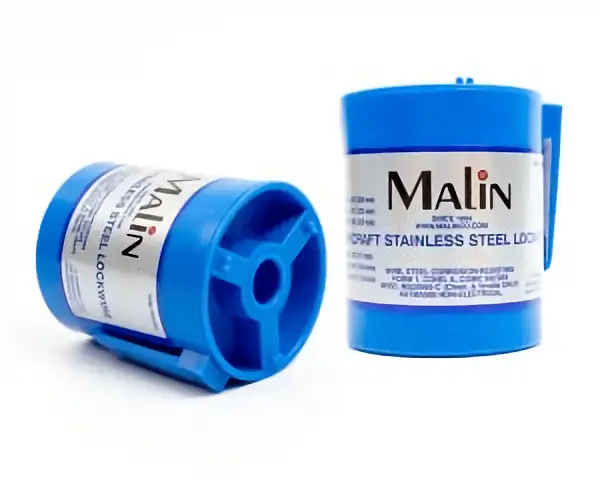When bolts become loose, Malin Co. MS20995C20 lock wire secures them as firmly as a lock by counteracting them with more tightening. It reinforces bolts, nuts & fasteners in various industrial equipment, aircraft, moving vehicles & marine vessels.
Features:
- Malin Co. MS20995C20 lock wire is colour-coded, offering easy safety lock wire identification.
- It features stainless steel construction to resist rust and corrosion in harsh marine environments.
- This MS20995C20 lock wire is easy to shape and form.
- To secure another component in place, the safety lock wire must first be passed through a fastener, then twisted and tightened.
- Selected models are packed in a recyclable canister made of high-density polyethene to protect against grease & corrosive materials.
Standards and Approvals:
Frequently Asked Questions:
Q. Why are the uses of wire locking turnbuckles and nuts?
A. Positive wire locking, often known as safety wiring, is a form of locking mechanism used to secure cap screws, nuts, bolt heads and turnbuckle barrels that cannot otherwise be secured. In locations where vibration could release a bolt, safety wire is required.
Q. What material makes up Lockwire?
A. Many alloys, including Monel, Inconel, stainless steel, carbon steel, aluminium, and even copper are used to make traditional safety locking wire.
Q. What things should we keep in mind before using a lock wire?
A.
- Lock wires shouldn't be installed in such a way that they are subjected to chafing, vibration fatigue or additional tension other than the tension imposed on the wire to prevent loosening.
- Ensure that the units to be locked and wired are properly torqued.
- Under-torquing or over-torquing to achieve proper hole alignment is not recommended.
 Change Country
Change Country

